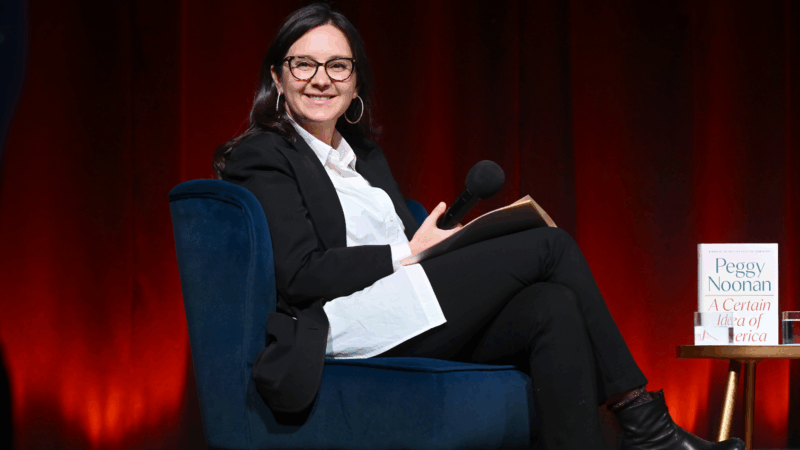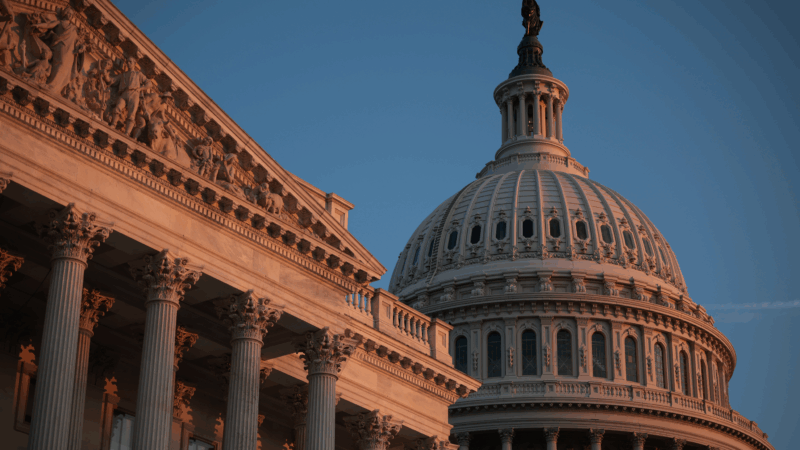CBS’ next top editor to be Bari Weiss of The Free Press
CBS News is planning to take another step to appeal to right-of-center viewers by installing Bari Weiss as editor in chief. CBS’ new corporate owner, Skydance Media, is also acquiring The Free Press, Weiss’ views-and-news site.
Weiss will arrive with a mandate to redefine the CBS News brand in the eyes of the public and refine its news coverage. She is seen as a change agent for a network regularly accused by President Trump and his political allies of liberal bias.
Weiss founded The Free Press after a blistering resignation from The New York Times, where she accused colleagues of intolerance. She has no experience in broadcasting and appears unlikely to run CBS’ news division on a day-to-day basis given the logistical demands of TV news. The current president and executive editor, Tom Cibrowski, a veteran broadcast news executive, is staying on. The two will be presented to the newsroom as partners.
NPR interviewed eight current and former journalists at CBS News for this story. Several still at the network — speaking on condition of anonymity because the network did not authorize them to speak publicly — say they are withholding judgment until they see whether Weiss offers insight and guidance or starts issuing decrees with ideological intent.
Weiss’ job will be complicated, however, by the company’s intention to conduct network-wide layoffs this month of up to 10% of the workforce, according to two people with direct knowledge. They spoke on condition of anonymity because they were not authorized to speak publicly on the matter.
While the news division president is the titular head, CBS News has a tradition of strong-willed, independent-minded executive producers stretching back to Edward Murrow’s collaborator Fred Friendly and 60 Minutes creator Don Hewitt.
Weiss is considered sharp, savvy and entrepreneurial. She had been an opinion and book reviews editor at The Wall Street Journal before joining the New York Times’ opinion section, where she also wrote under her own byline, often taking a contrarian bent. When she left that paper in July 2020, it — like many newsrooms — was grappling with tensions over social justice. She denounced her former colleagues in a publicly posted letter to Times Chairman and Publisher A.G. Sulzberger, saying they bullied her and created what she said was an “illiberal environment.” At the time, the Times responded by affirming a commitment to honest dialogue and mutual respect among colleagues.
The Free Press has focused on what it contends is a cancel culture afflicting institutions across higher education and popular culture. It made a splash last year by publishing a critical essay about NPR by Uri Berliner, then a senior business editor at the public media network, and critiques of how mainstream news organizations are covering the Israel-Hamas war.
While drawing support from many who accuse the mainstream media of being reflexively liberal, the site does not blindly embrace Trump’s agenda. When the nation’s top broadcast regulator, Federal Communications Commission Chairman Brendan Carr, pressured ABC to “take action” on Jimmy Kimmel, The Free Press cried foul on First Amendment grounds.
Under the new plan, Weiss will continue to run The Free Press as a standalone news-and-views site, maintaining its own brand and subscription model. Outside analysts say the acquisition figure appears high, but reflects the value that Skydance Media CEO David Ellison and his multibillionaire father Larry Ellison place on Weiss and her news site.
Since Skydance bought CBS’ parent company Paramount in July, David Ellison has made clear that the network is friendly to conservative views. His father, who is the major financial backer of Skydance and the Paramount deal, is the founder of Oracle and a vocal Trump supporter.
Yet that purchase was held up for months as CBS’ former owner negotiated a $16 million settlement with Trump. Just before last year’s election, Trump sued CBS alleging that a 60 Minutes interview with Democratic presidential nominee Kamala Harris had been edited in an effort to make her appear more articulate than she was.
Many legal experts had considered the lawsuit frivolous and CBS likely to triumph in court. Yet Carr initiated a formal FCC review of CBS that reinforced Trump’s complaint, raising the pressure on the network and its owners.
Before the settlement, Cibrowski’s predecessor Wendy McMahon resigned, as did Bill Owens, the longtime executive producer of the network’s signature show, 60 Minutes. In a note to staff, Owens said he was no longer allowed “to make independent decisions based on what was right for 60 Minutes, right for the audience.”
Before completing the purchase, David Ellison made commitments to the FCC’s Carr to reshape Paramount, CBS and CBS News. Skydance then hired Kenneth Weinstein, the former president and chief executive of the Hudson Institute, a conservative think tank, as CBS News’ ombudsman to field complaints about news coverage.
In approving the sale, the FCC said Skydance had made written commitments to “root out the bias that has undermined trust in the national news media” and “ensure that the new company’s programming embodies a diversity of viewpoints from across the political and ideological spectrum.”
Ellison may not be done expanding Skydance’s journalism portfolio. He is reportedly preparing a bid for Warner Brothers Discovery, which owns the cable news giant CNN.
Team USA faces tough Canadian squad in Olympic gold medal hockey game
In the first Olympics with stars of the NHL competing in over a decade, a talent-packed Team USA faces a tough test against Canada.
PHOTOS: Your car has a lot to say about who you are
Photographer Martin Roemer visited 22 countries — from the U.S. to Senegal to India — to show how our identities are connected to our mode of transportation.
Sunday Puzzle: TransformeR
NPR's Ayesha Rascoe plays the puzzle with listener Joan Suits and Weekend Edition Puzzlemaster Will Shortz.
Looking for life purpose? Start with building social ties
Research shows that having a sense of purpose can lower stress levels and boost our mental health. Finding meaning may not have to be an ambitious project.
Danish military evacuates US submariner who needed urgent medical care off Greenland
Denmark's military says its arctic command forces evacuated a crew member of a U.S. submarine off the coast of Greenland for urgent medical treatment.
Only a fraction of House seats are competitive. Redistricting is driving that lower
Primary voters in a small number of districts play an outsized role in deciding who wins Congress. The Trump-initiated mid-decade redistricting is driving that number of competitive seats even lower.






